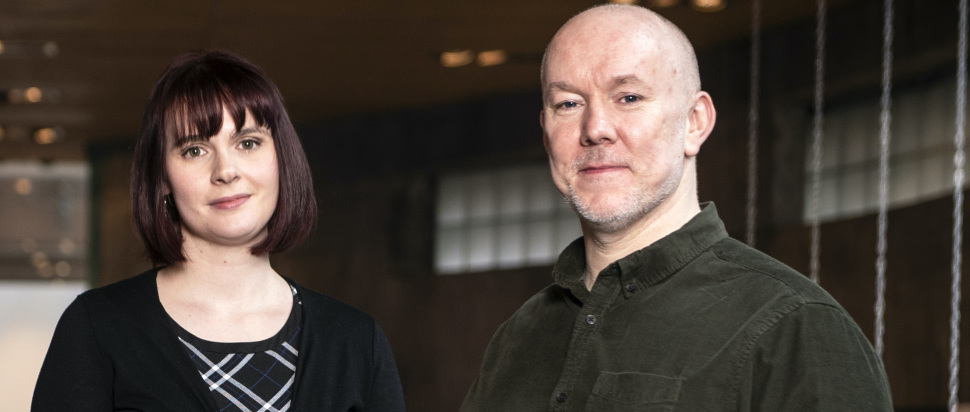Welcome to the Glasgow Creative Accelerator
We speak to the people behind Glasgow Creative Accelerator, a new programme that aims to help Glasgow creatives lay down solid foundations for their businesses
Scotland does not want for creative excellence. A cursory glance at any issue of The Skinny will tell you that. This doesn’t mean it’s easy being a creative in Scotland. Earning a living from your art can often be an uphill struggle and as we’ve seen since the start of the coronavirus pandemic, creatives often fall through the cracks in government support.
Creatives based in Glasgow have some help on the horizon, however, in the form of the Glasgow Creative Accelerator. The programme is run by Elevator, the business support agency dedicated to helping Scottish entrepreneurs make the most of their skills through tailored business advice. Its Creative Accelerator does something similar for creative entrepreneurs.
Lynne Martin, the manager of the project, knows a thing or two about working with creatives. When there’s not a pandemic on, you’ll find her helping to shake off the shortbread tin image of Scottish folk song and poetry at the Edinburgh Fringe. She describes her role at Elevator as “enterprise education for creators.”
“It's not just about saying to creatives, ‘Here's a business model canvas, go off and grow your business’”, she tells me over Zoom. “It's about giving them tools they will need, introducing them to buyers, and a bit of business-speak translation. It also requires an empathetic mind to help understand the creative individual as opposed to just understanding their business.”
A significant part of Martin’s job is giving creatives the confidence to expand on the skills they already use day-to-day in their practice. “I'm usually working with individual artists and makers who are top-notch at the thing that they do. But they think they can’t think in an entrepreneurial way, when actually the curiosity and growth mindset they bring to their practice can be applied to some really simple tools that will help them further their business.”
We’re joined on the call by Andy Campbell, Elevator's Commercial Director, who lays out the differences he sees between creative and non-creative businesses. “Non-creatives tend to solve a very clear problem,” he explains. “You know, there's something missing from the marketplace, a technology that we need to invent or whatever.” Creatives, by contrast, aren’t necessarily trying to fill a consumer gap. “Creatives are in the business of self-expression, but they’re still catering to the vital human needs of others.”
Creatives often don’t see their work in terms of this human need, however, because their main focus is on producing. “They get very caught up in the creation of the thing,” says Campbell, “but what they tend to forget is, what is the commercialisation opportunity?”
For many creative people, discussions of commercialisation may bring them out in hives. “Even using the term ‘product’ to describe what they're producing can be very alienating to creatives,” notes Campbell. But an artist cannot live by self-expression alone. One of the key roles of the Glasgow Creative Accelerator will be helping creatives understand their worth.
“People often undervalue what creative people do,” says Campbell. “You hear it all the time, you know: ‘I need a bit of artwork done. Surely that can't be that complicated. I'm not going to pay for it.’ But the reality is that artwork takes time and skill to create and people need to value that.”
One way that the Glasgow Creative Accelerator will get artists to see their work in a new light is by presenting their creative businesses to a terrifying panel of 'agitators'. Martin explains: “It’s about getting people in from lots of different business backgrounds to speak to our creatives and get them to basically justify their marketing strategies.” The conversations are often awkward, but they allow the creatives to see their businesses through fresh eyes. “At a very basic level,” says Martin, “it helps them have conversations that they may never have had out loud. You know, 'Why do you sell these earrings for £75 as opposed to £175?' It shakes them up, it irritates them, and ultimately it helps them come to more healthy conclusions about their business.”
Now more than ever may be a good time for this kind of self-reflection. COVID has stopped everyone in their tracks, the creative sector and the commercial sector alike, and taught us – if nothing else – how important the creative arts are for our health and wellbeing. Whether you’re a creative at the start of your career or have been in the game for years, the ability to adapt, to refocus and to roll with the punches will be vital in the coming months and years.
Campbell is certainly hopeful for the future of our creatives post-pandemic: “When you look at any historical period when there is an emergence from any challenge – whether that be a war, famine, poverty – the renaissance is always driven by the creative sector. We want to see that for Scotland; we want to see that for Glasgow.”
To learn more about Elevator's Glasgow Creative Accelerator and to register your interest in taking part, head to elevatoruk.com/accelerators/glasgow-creative-accelerator
